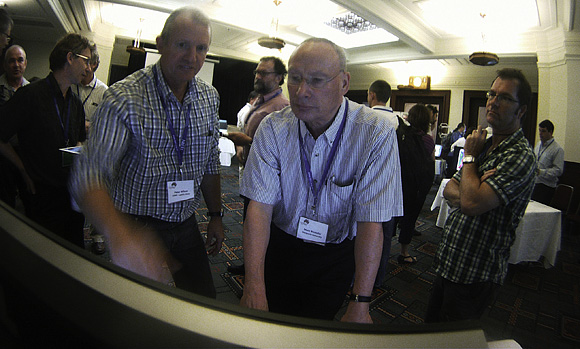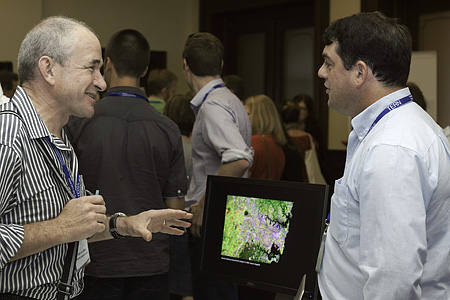If Alan Noble had his way, all publicly funded information, including scientific data, would be released under permissive licencing.
Alan, the Engineering Director for Google Australia and New Zealand, challenged the audience at the TERN symposium dinner last night, speaking about the need to unleash our public information assets.
‘If we want to optimise our economic and social assets, the best way to do that is by making it open. After all, the public have paid for it,’ he said.
‘Oftentimes the barriers aren’t technical, they’re cultural – a tendency to horde information.’
‘How do people get information? Increasingly they go to the internet. Google and other browsers have conditioned people to go to Google. This is good and bad: the expectation has been built but the data is not always available.’
Alan’s message caused a stir and ensured an lively evening of discussion about data sharing and re-use, and the challenges and opportunities this presents.
It was a perfect lead-in to Wednesday’s full-day session that introduced delegates to TERN’s diverse data infrastructure, and the ways that it can be used to support ecosystem studies and management across the country. Strong interest in the session clearly showed that our ecosystem scientists and managers are using this kind of infrastructure to support their work and open new opportunities. The final interactive session of the day allowed delegates to get their hands ‘dirty’, trying out a range of TERN’s data infrastructure and chatting with the creators of these new tools.

At the well-attended data infrastructure session, Peter Wilson from CSIRO and the TERN soils facility and Mark Westoby from the TERN Board check out TERN soils data infrastructure (above) and (below)
Matt Paget demonstrates the range of products AusCover provides
Published in TERN e-Newsletter February 2013 special symposium coverage







